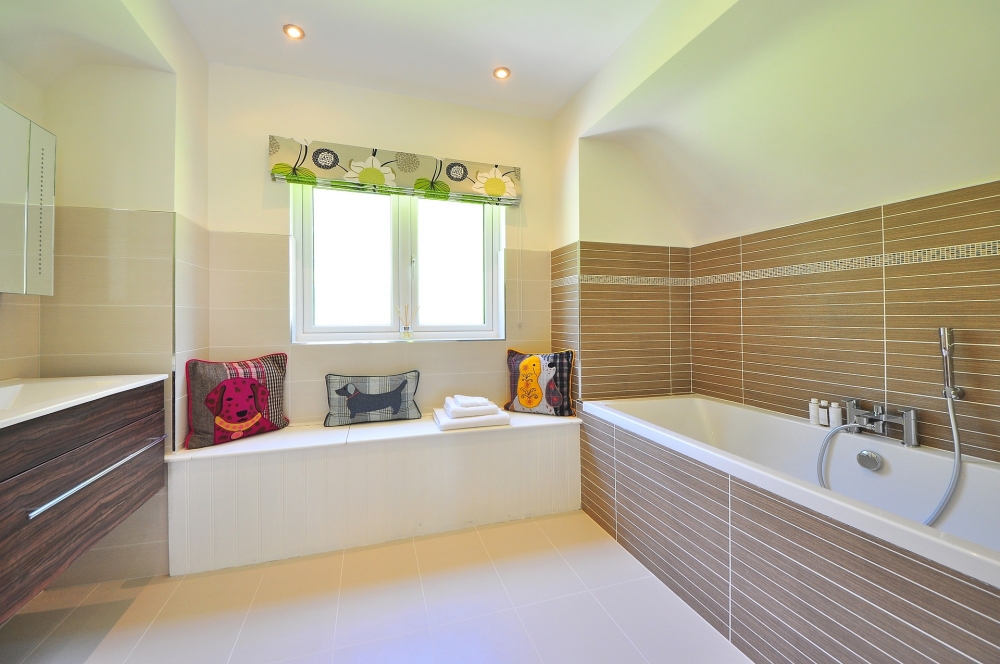Tips on How to Maintain Your Bathroom Plumbing: Advice for New Homeowners
Tips on How to Maintain Your Bathroom Plumbing: Advice for New Homeowners
Blog Article
They are making a few good annotation on the subject of Smart Plumbing Tips for New Homeowners in general in the content down below.

For brand-new homeowners, understanding and keeping shower room plumbing can save both money and time by stopping expensive problems down the line. Here are some necessary bathroom pipes ideas to assist you maintain every little thing running smoothly.
Plan For Cold Weather
Secure your pipes from freezing during winter by shielding pipes in unheated locations like cellars, attic rooms, and garages. During severe cold, allow cold water drip from faucets offered by exposed pipelines to assist protect against cold.
Schedule Regular Upkeep
Take into consideration scheduling yearly assessments with a licensed plumber. They can spot problems that you could miss out on, such as concealed leakages or wear and tear on pipes and fixtures. Regular upkeep assists expand the life of your pipes system and can prevent emergency situations.
Familiarize Yourself with the Key Shut-Off Shutoff
Recognizing where the primary water shut-off shutoff is located in your home is critical. This enables you to rapidly turn off the water supply in case of major leakages or throughout pipes emergency situations, protecting against considerable water damages.
On A Regular Basis Evaluate for Leakages
Small leakages can cause huge issues. Consistently inspect under sinks, around commodes, and near pipes components for any kind of signs of leaks. Seek wetness, tiny drips, or corrosion. Catching and fixing leakages early can stop a lot more major damages and save water.
Maintain Your Water Heater
Ensure your water heater is readied to a suitable temperature level (typically around 120 degrees Fahrenheit) to stop hot and reduce power usage. Flush the storage tank each year to get rid of sediment build-up, which can reduce the effectiveness and lifespan of your heater.
Upgrade Your Fixtures
If your home has older fixtures, take into consideration updating to extra efficient models. Modern bathrooms, showerheads, and taps are developed to make use of much less water while providing excellent stress, which can substantially reduce your water bill and ecological impact.
Be Cautious with Do It Yourself Plumbing Repair Works
While it's tempting to handle all home repair work on your own, beware with pipes. Some problems might require professional expertise, specifically if they involve primary water lines or sewage system repair work. Working with a specialist can often be extra cost-effective than DIY, particularly if it stops more damages.
Do Not Ignore Slow Drains Pipes
If your sink or bath tub is draining gradually, it's frequently an indication of a blockage forming. Addressing this early can prevent a complete clog. Make use of a bettor or a plumbing professional's serpent to clean out debris. Avoid utilizing chemical drainpipe cleaners as they can harm your pipes gradually.
Know What Not to Flush
Toilets are not garbage disposals. Prevent flushing anything besides toilet tissue and human waste. Products like wipes, feminine health products, and cotton swabs need to be disposed of in the garbage to prevent blockages and sewage system backups.
Install Strainers in Drains
Place filters in your sink and tub drains to catch hair and various other particles prior to they enter your plumbing system. Cleansing the strainers routinely will help avoid build-up and maintain water flowing freely.
Conclusion
Recognizing and maintaining your home's bathroom plumbing can stop many usual concerns. By following these necessary ideas, you can guarantee your shower room continues to be useful and reliable, saving you time and money in the future.
Essential Plumbing Tips for Homeowners: Keep Your Pipes Flowing Smoothly
As a homeowner, understanding the basics of your plumbing system can save you time, money, and a lot of headaches. Plumbing issues can range from minor annoyances like dripping faucets to major problems like burst pipes that cause significant damage. This guide provides essential tips to help you maintain your plumbing system and tackle common issues.
Understanding Your Plumbing System
Supply System: Brings fresh water into your home from a municipal source or a well. Drain-Waste-Vent System: Removes wastewater and vents sewer gases outside. Fixtures and Appliances: Includes sinks, toilets, showers, dishwashers, and washing machines. Basic Maintenance Tips
Regular Inspections: Periodically check for leaks, corrosion, and other signs of wear and tear. Look under sinks, around toilets, and near water heaters. Know Your Main Shut-Off Valve: In case of a major leak, you’ll need to shut off the water quickly. Ensure everyone in your household knows where the main shut-off valve is located. Prevent Frozen Pipes: In cold climates, insulate exposed pipes and let faucets drip during extreme cold to prevent freezing. Use Strainers: Install strainers in sinks and tubs to catch hair, food particles, and other debris that can cause clogs. Common Plumbing Issues and Solutions
Clogged Drains:
Prevention: Avoid pouring grease down the drain and use drain screens to catch debris. DIY Fix: Use a plunger or a plumbing snake to clear minor clogs. For stubborn clogs, a mixture of baking soda and vinegar can sometimes help. Leaky Faucets:
Prevention: Replace washers and seals regularly. DIY Fix: Turn off the water supply, disassemble the faucet, and replace worn parts.

Call Today Report this page